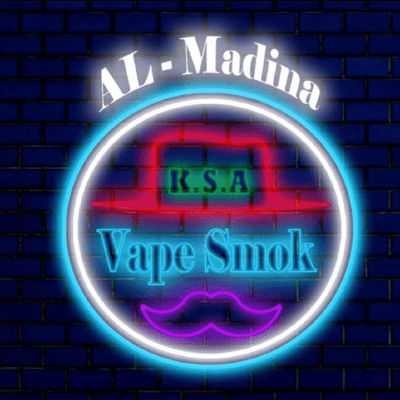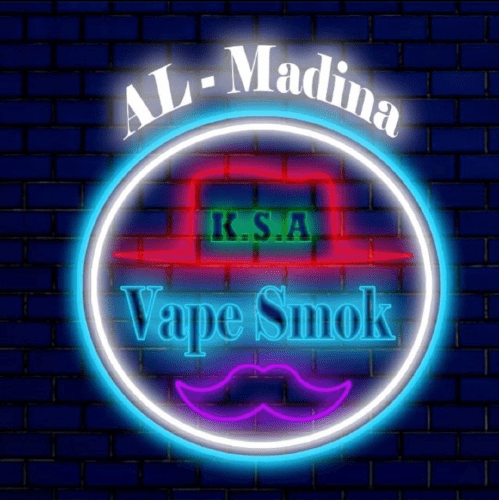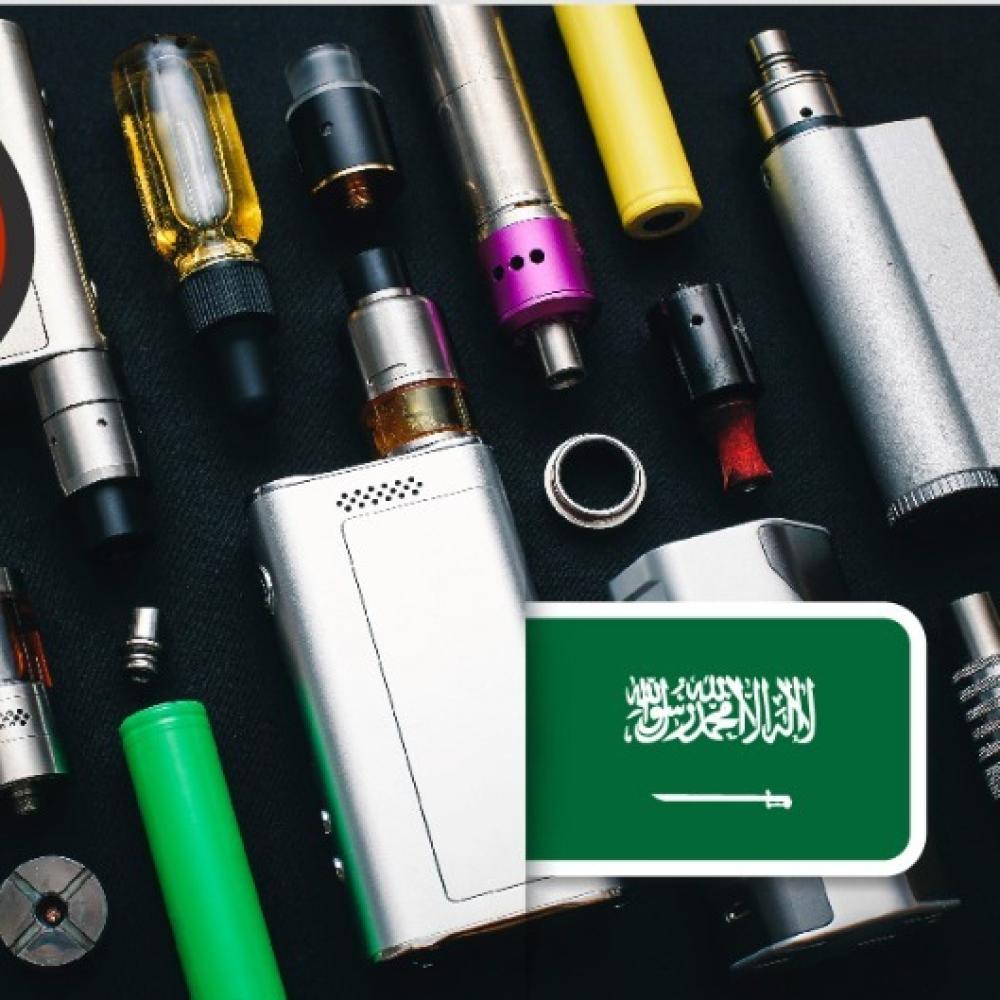

Welcome to Your Source for Navigating Vape Product Sales Laws in Saudi Arabia
New Regulations: Understanding Vape Product Sales Laws in Saudi Arabia
In the ever-evolving landscape of vaping regulations, Saudi Arabia has rolled out new laws that are reshaping the market. As a consumer or business, understanding these changes is crucial for compliance and informed decision-making. Here, we delve into the latest sales laws that affect how vape products are marketed and sold across the Kingdom.
The Future of Vaping: What Saudi Arabia's Latest Sales Laws Mean for Consumers
As the vaping industry in Saudi Arabia undergoes significant regulatory changes, consumers are facing a new reality. Discover what these new regulations mean for your purchasing decisions and lifestyle choices. Our guide provides insights into how these laws aim to enhance safety and control in the market.
Saudi Arabia’s Vape Market: Navigating the New Legal Landscape
Navigating the new legal framework for vape sales in Saudi Arabia can be challenging. With our expert analysis, learn how to manage these changes effectively, ensuring compliance and exploring the potential for innovation within the industry.
Understanding the Ban: What You Need to Know About Vape Sales in Saudi Arabia
Stay informed about the specific bans and restrictions imposed on vape sales in Saudi Arabia. From product specifications to sales limitations, understanding these laws is essential for both consumers and businesses operating in this sector.
Vape Products in Saudi Arabia: Compliance Challenges and Opportunities Ahead
The new compliance requirements for vape products in Saudi Arabia present both challenges and opportunities. Businesses must adapt to these regulations while exploring innovative ways to thrive in a constrained environment.
Government Regulations: The Impact of Vape Sales Laws on Saudi Businesses
Saudi businesses involved in the vape industry are witnessing a dramatic shift due to stringent government regulations. Here, we explore how these sales laws impact operations, with a focus on strategic adjustments required to stay competitive and compliant.
The Shift in Saudi Arabia's Vaping Scene: Recent Changes to Sales Regulations
Recent changes in sales regulations are redefining Saudi Arabia's vaping scene. Our comprehensive coverage unpacks these shifts, providing you with the knowledge needed to adapt and succeed in this transforming market landscape.
How Saudi Arabia's Vape Sales Laws Affect Health and Consumer Choices
Explore the implications of Saudi Arabia's vape sales laws on public health and consumer choice. Our insights reveal the balance between regulation and individual freedom, shedding light on how these laws aim to protect and inform consumers.
Exploring the Legal Age for Vaping Products in Saudi Arabia: What Buyers Should Know
Understanding the legal age for purchasing vaping products in Saudi Arabia is vital for compliance and responsible consumption. We provide clarity on what buyers need to know about age restrictions and their implications.
From Sales to Health Risks: Discussing the Implications of Saudi Arabia's Vape Regulations
Join us in discussing Saudi Arabia's comprehensive approach to vaping regulation, spanning sales policies to health risk assessments. Our platform is dedicated to fostering informed dialogue on the far-reaching effects of these regulations.
Embrace your role in a responsible vaping community by staying informed about the latest developments and their impact on your choices and operations.
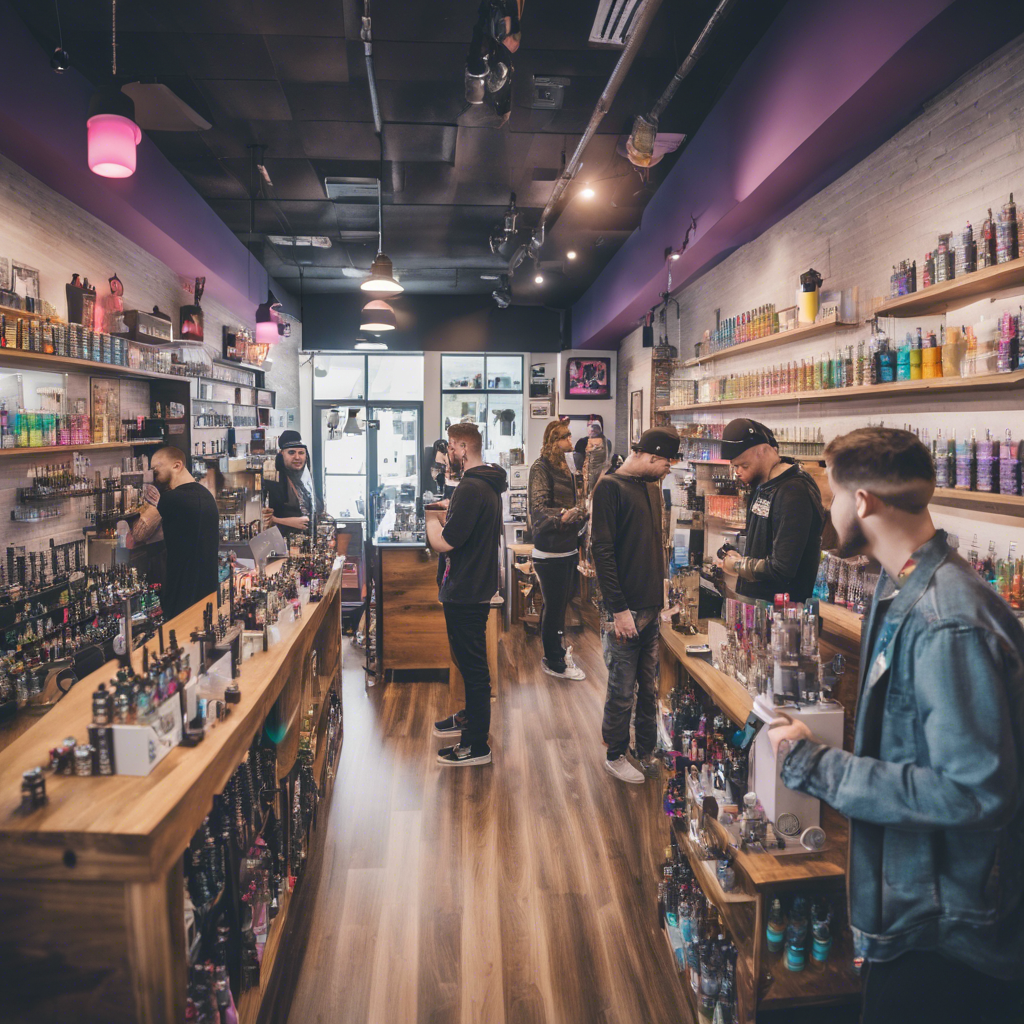
New Regulations: Understanding Vape Product Sales Laws in Saudi Arabia
Vaping has become a popular alternative to traditional smoking, yet, it comes with its own set of regulations. Since the introduction of new legislation in Saudi Arabia, it is essential for both consumers and businesses to understand the compliance requirements that govern the sale of vape products.
Compliance Requirements for Vape Businesses
For businesses aspiring to thrive in the vape market, adherence to compliance requirements has become non-negotiable. Companies must navigate these regulations meticulously to ensure that their products are both legally sold and safe for consumers. This includes:
- Certifications: All vape products must be certified and approved by relevant health authorities. This helps guarantee that the products meet established safety standards.
- Labeling: Clear and accurate labeling is crucial. Products should include information about ingredients, nicotine content, and warnings about health risks.
The importance of compliance can't be overstated; non-compliance can lead to severe consequences, including significant fines or even shutdown.
Ensuring Safety and Marketing Standards
Safety standards extend beyond just the product itself; they also encompass marketing strategies. Businesses are required to market their vape products responsibly. This means:
- Targeting the Right Audience: Marketing should not be directed toward minors.
- Transparency: Businesses are expected to provide transparent information regarding the risks associated with vaping.
By focusing on education rather than promotion, companies can build a healthy relationship with consumers fostered by trust.
Barring Unregulated Products
One of the most critical aspects of the new laws is the effort to bar unregulated products from the market. Only those products that have met the strict safety criteria will be allowed for retail. Companies must undertake diligent checks to ensure that the products they offer are compliant.
In a nutshell, Saudi Arabia’s regulations on vape products are designed to create a safer environment for consumers while promoting responsible business practices. By adhering to these laws, vape companies position themselves not only for compliance but also for success in a rapidly evolving market.
The Future of Vaping: Implications for Consumers
As the regulatory landscape surrounding vaping products continues to evolve in Saudi Arabia, consumers can expect significant changes in their vaping experience. The focus on safety and compliance means that the implications are broad, touching on availability, product reliability, and age restrictions. Let's delve deeper into these transformative elements.
Shift in Availability and Marketing
With the introduction of new regulations, consumers will notice a shift in how vape products are marketed and made available. Retailers will need to adhere strictly to guidelines that ensure responsible marketing practices. As a result, consumers might find that:
- Fewer Promotions: Expect less aggressive marketing aimed at enticing younger audiences.
- Certified Outlets: Access to vape products will be largely through certified retailers, enhancing the shopping experience.
A personal encounter illustrates this shift well: a friend of mine recently visited a local vape shop and found a clear emphasis on educational material rather than flashy ads, which sparked intriguing conversations about safety and informed choices.
Safer and Reliable Products
The commitment to safety ensures that the products on the market are reliable and of high quality. Consumers can look forward to:
- Stringent Testing: Products will undergo rigorous testing to meet health standards, ensuring that what you purchase is safe to use.
- Transparency: Brands will provide detailed information regarding ingredients and manufacturing processes, empowering consumers to make informed decisions.
Emphasis on Age Restrictions
One of the most critical implications for the future of vaping in Saudi Arabia revolves around age restrictions. The regulatory framework emphasizes ensuring that only individuals of legal age can purchase vape products. This aims to:
- Reduce Access for Minors: Stricter checks will prevent underage individuals from accessing vaping products.
- Cultivate Responsible Use: By focusing on age restrictions, the government aims to encourage responsible vaping habits among adults.
In conclusion, as Saudi Arabia navigates its evolving vaping landscape, consumers are poised to benefit from a safer, more transparent, and responsible market environment, fostering healthier choices for everyone involved.
Saudi Arabia’s Vape Market: Navigating the Legal Landscape
As Saudi Arabia continues to refine its regulations surrounding vape products, businesses are forced to pivot and adapt to this new legal terrain. The implications of these changes are profound, affecting almost every aspect of operation in the vape industry. Let’s delve into how businesses can navigate this evolving landscape.
Adjustments for Businesses
First and foremost, businesses must reassess their operations to comply with new regulations. This means adopting a more structured approach to ensure legality and safety. Companies will need to:
- Revise Supply Chains: Sourcing raw materials and finished products from compliant vendors.
- Implement Training Programs: Staff training on compliance and product safety should become a priority.
A colleague in the vape industry shared how his company had to overhaul its entire inventory, shifting to certified products, but ultimately found their efforts were well worth it, boosting customer trust and satisfaction.
Impact on Marketing Strategies
With new regulations in place, marketing strategies will also require significant adjustments. Responsible marketing will become vital, meaning that companies may now focus on:
- Targeted Advertising: Creating campaigns that appeal to legal-age consumers without glamorizing vaping.
- Education-Based Initiatives: Workshops and informational sessions that promote responsible vaping can help build brand loyalty.
This current environment prompts a more long-term view of marketing, aiming to foster positive relationships with consumers through transparency and education.
Opportunities for Companies
While the regulatory landscape presents challenges, it also opens doors for innovative companies willing to adapt. By embracing compliance, businesses can capitalize on new opportunities such as:
- Development of New Products: With safety being a primary focus, companies can invest in research and development for healthier vape options.
- Building Brand Reputation: Compliance can enhance credibility, establishing a strong brand position in a crowded market.
In conclusion, by strategically adjusting to the legal landscape, businesses in Saudi Arabia’s vape market can not only survive but thrive. In navigating these changes, they pave the way for a healthier, more responsible vaping industry that benefits everyone—from consumers to companies.
Understanding the Ban: Restrictions on Vape Sales
In the context of Saudi Arabia’s evolving vape market, it’s crucial for businesses and consumers alike to grasp the restrictions implemented concerning vape sales. These bans are part of the country's commitment to public health and safety. Understanding the implications of these restrictions is critical for navigating the landscape successfully.
Importance of Compliance
Compliance with vape sales restrictions is more than just a formality; it is essential for fostering a safer market environment. For businesses, adhering to regulations means:
- Building Consumer Trust: By following laws, companies can reassure customers that they prioritize safety and quality.
- Promoting Responsible Vaping: Compliance contributes to a culture of accountability, helping to mitigate health risks associated with vaping.
A local entrepreneur shared her experience in shifting her small vape shop’s practices to align with regulatory standards. She noted that not only did this enhance her shop's reputation, but it also significantly increased customer loyalty as patrons felt more secure in their purchases.
Legal Repercussions for Non-Compliance
The Saudi government takes violations of vape sales laws seriously. The consequences of non-compliance can be severe, including:
- Fines and Penalties: Businesses found in violation of regulations may face hefty fines, which can impact their financial stability.
- Increased Scrutiny: Repeat offenders could also be subject to investigations or even have their licenses revoked.
The stakes are high, and it’s evident that adhering to regulations is not merely a good practice but a necessity for long-term survival in the market.
In summary, understanding the bans on vape sales is essential for both consumers and businesses. With compliance at the forefront, stakeholders can navigate these regulations more effectively, ensuring a safer and more responsible vaping environment for all.
Vape Products in Saudi Arabia: Compliance Challenges and Opportunities
As the regulatory landscape for vape products in Saudi Arabia continues to evolve, businesses face a unique set of challenges along with noteworthy opportunities. On the path to compliance, companies must navigate various complexities, but the potential rewards make these efforts worthwhile.
Investing in Compliance Efforts
For businesses aiming to thrive in this regulated environment, investing in compliance efforts is essential. This can involve several strategic initiatives such as:
- Staff Training: Ensuring that employees are thoroughly educated on current regulations can help maintain compliance and promote responsible practices within the organization.
- Product Testing: Investing in labs for rigorous product testing can guarantee that offerings meet safety standards and comply with regulatory requirements.
A friend in the industry shared how his company allocated funds to improve quality control processes. This investment not only helped them avoid regulatory pitfalls but also led to a boost in product quality, enhancing their reputation among customers.
Competitive Edge for Compliant Companies
While navigating compliance may seem daunting, businesses that successfully align with regulatory requirements can gain a significant competitive edge. Benefits include:
- Enhanced Consumer Trust: Companies that are transparent about their compliance can build stronger relationships with consumers, leading to increased loyalty and word-of-mouth referrals.
- Market Differentiation: In an industry where many products can blend together, showcasing high compliance standards can set a brand apart as a leader in safety and quality.
For instance, one compliant vaping company recently reported an uptick in market share after embracing transparency in their marketing and product offerings, showcasing the direct benefits of adhering to regulations.
In conclusion, while compliance with vape product regulations in Saudi Arabia presents its challenges, it also opens up avenues for businesses to reinforce their standing in the market. By committing to compliance, companies can create a safer environment and enjoy a competitive edge that pays off in customer loyalty and brand reputation.
Government Regulations: Impact on Saudi Businesses
The changes brought about by government regulations surrounding vape products have shaken up the business landscape in Saudi Arabia. While these regulations enforce safety measures and product quality, they also compel businesses to rethink their operational strategies to align with new standards. Let’s unpack how these regulations affect businesses and foster a safer market.
Operational Reforms Required
One of the most noticeable impacts of the new regulations is the necessity for operational reforms across the industry. Companies must adapt in several ways, including:
- Updating Policies and Procedures: Businesses should revise their operational manuals to incorporate compliance with safety regulations, ensuring every employee understands the new protocols.
- Investing in Technology: Advancements in inventory management and tracking systems can streamline processes to ensure only compliant products reach consumers.
A local vape shop owner recounted a significant overhaul of their procedures when legislation tightened. They implemented a new inventory system that flagged non-compliant products, leading to marked improvements in operational efficiency and compliance adherence.
Encouraging Market Competition for Safety
An indirect but vital consequence of government regulations is the promotion of market competition focused on product safety. As compliance becomes a top priority, companies are increasingly required to demonstrate their commitment to consumer protection, which leads to:
- Higher Quality Standards: With stricter guidelines in place, businesses must invest in better materials and production standards.
- Innovative Solutions: Companies are motivated to develop innovative products that prioritize user safety, gaining a reputation as responsible market players.
For instance, a company recently introduced a line of vape products that utilized natural ingredients and transparent labeling after recognizing a niche for safer alternatives, gaining traction among health-conscious consumers.
In summary, the impact of government regulations on Saudi businesses extends far beyond mere compliance. By embracing operational reforms and competition centered around safety, companies can not only navigate these changes successfully but also thrive in a market that values responsible practices. This proactive approach can significantly enhance business sustainability and consumer trust, shaping the future of vaping in the Kingdom.
The Shift in Saudi Arabia's Vaping Scene: Recent Changes
As the vaping landscape in Saudi Arabia evolves, recent changes have sparked significant shifts toward increased accountability and enhanced consumer protection. These developments reflect a growing awareness of the responsibilities that come with selling vape products, ensuring a healthier environment for consumers.
Accountability and Consumer Protection
One of the cornerstones of the recent changes in the vaping scene is the emphasis on accountability from businesses. Companies are now held responsible for ensuring that their products meet safety standards and are marketed ethically. Key aspects include:
- Transparent Practices: Businesses must disclose ingredient lists and potential health warnings on their products clearly. This transparency builds trust with consumers, who can make more informed decisions about what they are putting into their bodies.
- Quality Assurance: Regular audits and quality checks have become essential practices. Companies that prioritize accountability can more effectively mitigate risks associated with product safety.
An acquaintance in the industry shared how her vape brand began conducting quarterly audits, which not only kept them compliant but also provided crucial feedback on product quality that improved their offerings significantly.
Importance of Adaptation for Stakeholders
As the regulations tighten, adaptation becomes imperative for all stakeholders in the vaping market — from manufacturers to consumers. The need for change can be summarized in several points:
- Proactive Engagement: Businesses must be aware of regulatory updates and engage with policymakers to voice their concerns or suggestions.
- Education for Consumers: Stakeholders should prioritize educating consumers about the benefits of compliant products and the importance of making safe choices.
For instance, one vape retailer organized community workshops to discuss new regulations and safe vaping practices, which not only informed customers but built a strong sense of community around responsible vaping.
In conclusion, the shift in Saudi Arabia's vaping scene towards heightened accountability and consumer protection is reshaping the market. By embracing these changes and adapting accordingly, stakeholders can foster a culture of safety and responsibility, ensuring that the vaping landscape evolves positively for everyone involved.
How Vape Sales Laws Affect Health and Consumer Choices
As Saudi Arabia continues to refine its vape sales laws, the impact of these changes ripples through the health landscape and consumer decision-making processes. The intent behind these regulations is not just to manage the market but to promote healthier lifestyle choices for consumers while ensuring safety and accountability.
Promoting Healthier Lifestyle Choices
One of the fundamental goals of the new vape sales laws is to encourage healthier lifestyle choices among consumers. By imposing regulations that restrict certain ingredients and promote transparency, the government is actively influencing consumer behavior. Here’s how:
- Quality Over Quantity: With compliance regulations in place, vape products must meet higher quality standards, shifting consumer preferences towards safer options.
- Harm Reduction Focus: The laws emphasize products that can serve as safer alternatives to traditional smoking, prompting users to consider vaping as a less harmful option.
For example, a friend who transitioned from smoking to vaping noted that the availability of regulated, quality vaping products made her decision much easier. She felt reassured knowing that the ingredients were compliant with safety standards.
Directing Consumers Towards Informed Decisions
With stricter regulations guiding the sale of vape products, consumers are better equipped to make informed choices. The emphasis on clear labeling and accurate product information helps demystify the vaping experience. Consider these points:
- Transparent Information: Detailed ingredient lists and potential health warnings allow consumers to understand what they are purchasing, empowering them to make decisions aligned with their health goals.
- Educational Initiatives: Many companies are now investing in educational campaigns, providing resources about the risks and benefits associated with vaping, which further steers consumers toward informed choices.
A local vape shop recently hosted workshops that discussed both the benefits and potential risks of vaping, helping consumers navigate the landscape more effectively.
In summary, Saudi Arabia's vape sales laws significantly affect health outcomes and consumer choices. By promoting healthier alternatives and directing consumers towards informed decisions, these regulations not only enhance public health but also foster a culture of responsible usage within the vaping community.
Exploring the Legal Age for Vaping Products in Saudi Arabia
As Saudi Arabia enhances its regulatory framework around vaping, one of the critical areas of focus is the legal age for purchasing vape products. This aspect is pivotal not only for public health but also for fostering responsible vaping behaviors among younger populations. Let’s explore how these regulations are enforced and their implications for youth access to vape products.
Enforcement of Legal Purchasing Age
The establishment of a legal purchasing age for vape products is designed to protect young individuals from the potential health risks associated with vaping. To effectively enforce this regulation, several measures are in place:
- Age Verification Systems: Retailers are required to implement strict age verification procedures. Customers must present valid identification to confirm they meet the legal age requirement.
- Training for Retail Employees: Staff training is critical. Employees must know how to verify IDs accurately and understand the legal repercussions of selling to underage customers.
A retailer I spoke with shared his experience: “After implementing a strict ID-checking system, we noticed a significant decrease in shoplifting incidents involving minors attempting to buy vape products, which is a win-win for everyone.”
Preventing Youth Access to Vape Products
The overarching goal of enforcing a legal age is to prevent youth access to vape products, thereby reducing the likelihood of addiction and health risks. Some strategies being used include:
- Awareness Campaigns: Educational initiatives aimed at both parents and youth highlight the dangers of vaping, reinforcing the message that it's important to wait until reaching the legal age.
- Site Inspections by Authorities: Regulatory bodies conduct random inspections of vape shops to ensure compliance with the age laws and verify that retailers are not selling to minors.
One young adult shared that having friends who could not access vaping products until they turned 18 made a noticeable difference; it fostered a culture of respect for the regulations among their peer group.
In summary, exploring the legal age for vaping products in Saudi Arabia reveals a concerted effort to protect young individuals while promoting responsible usage. By enforcing age restrictions and actively preventing youth access, the country is taking significant steps towards fostering a healthier generation.
Implications of Saudi Arabia's Vape Regulations: Sales to Health Risks
As Saudi Arabia continues to implement comprehensive vape regulations, understanding the implications of these rules on public health is crucial. The government’s focus on safeguarding health is evident in its quick response to the emerging trends in vaping, addressing the associated risks, and prioritizing safety. Let’s explore how these regulations aim to prioritize public health and ensure high safety standards.
Prioritization of Public Health
At the heart of Saudi Arabia’s vape regulations is a clear commitment to public health. The government recognizes the growing concerns regarding vaping and its impact on health. Key approaches include:
- Strict Regulation of Ingredients: By controlling what can be used in vape products, the regulations aim to limit exposure to harmful substances that may cause health problems.
- Public Awareness Campaigns: The government also invests in education, providing information on the risks associated with vaping, particularly among youth who might be tempted to try these products.
A close friend of mine, who worked in a public health organization, remarked on how these awareness campaigns have started changing perceptions about vaping among teenagers, encouraging them to make more informed choices.
Ensuring High Safety Standards in Vape Products
In conjunction with prioritizing public health, Saudi regulations place a significant emphasis on ensuring that vape products meet high safety standards. This includes:
- Mandatory Testing and Certification: Before any vape product hits the market, it must undergo rigorous testing to verify that it complies with safety regulations. This helps guarantee that consumers receive products that are not only effective but also safe to use.
- Regular Compliance Checks: Authorities conduct regular inspections of vape shops to ensure that products being sold adhere to the established safety guidelines.
For example, a local vape manufacturer recently highlighted how they improved their production processes post-regulation, resulting in safer products that customers appreciate more than ever.
In summary, the implications of Saudi Arabia’s vape regulations extend far beyond mere compliance. By prioritizing public health and guaranteeing high safety standards, these regulations reflect a proactive approach poised to foster a healthier society that can navigate the complex landscape of vaping in a safe and informed manner.
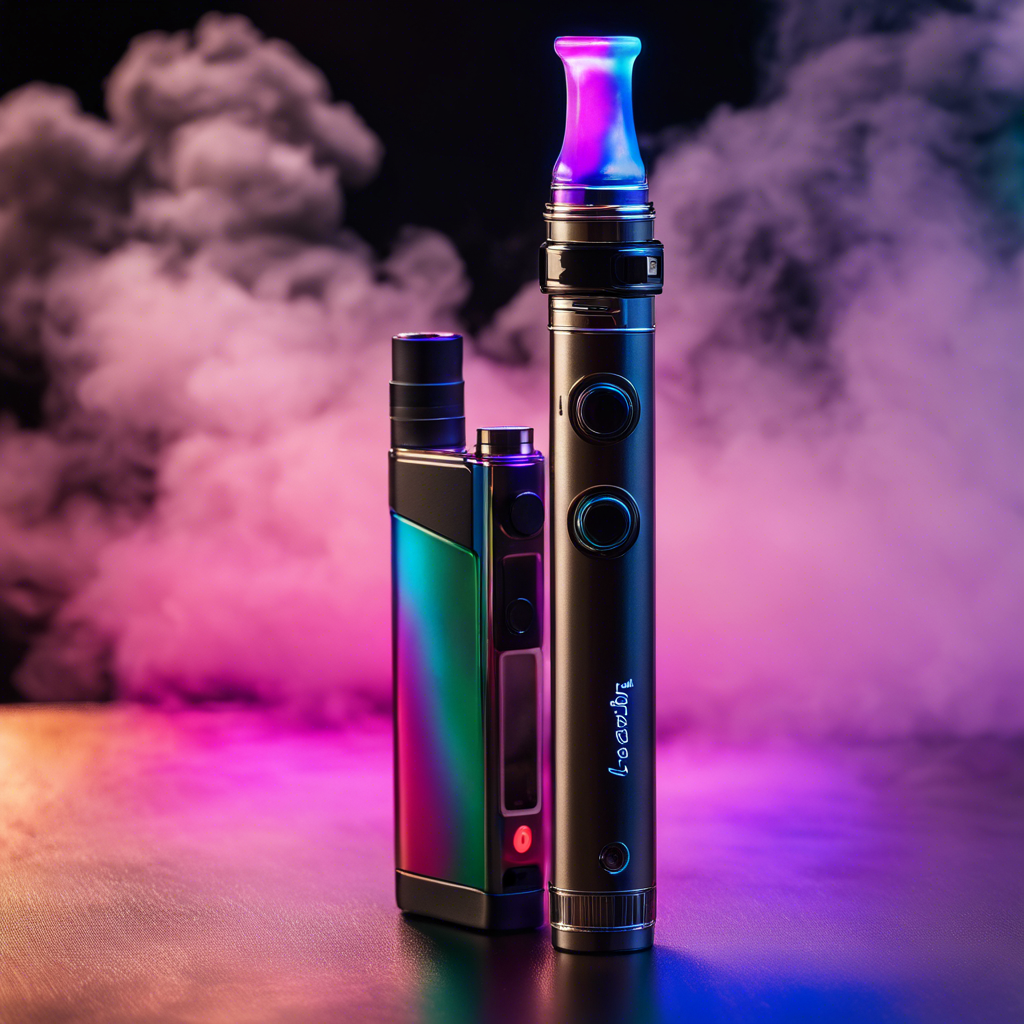
New Regulations: Understanding Vape Product Sales Laws in Saudi Arabia 🚬🇸🇦
Hey there, vape enthusiasts! 🌟 If you’re in Saudi Arabia or planning to visit, it’s important to stay updated on the latest regulations regarding vape products. With the rise in popularity of vaping, the Kingdom has introduced new laws to ensure safety and compliance. Let’s dive into what you need to know!
What’s New? 🆕
Recently, Saudi Arabia has implemented stricter regulations on the sale and distribution of vape products. These changes aim to control the use of vaping among the youth and ensure that products meet safety standards. Here are some key points to keep in mind:
Age Restrictions 🚫👶
One of the most significant changes is the enforcement of age restrictions. You must be at least 18 years old to purchase vape products in Saudi Arabia. Retailers are now required to check identification to ensure compliance. So, if you’re underage, it’s best to wait until you’re of legal age!
Licensing for Retailers 🏪
All retailers selling vape products must obtain a special license. This means that not every corner shop will be allowed to sell vapes. It’s a good idea to purchase your products from licensed vendors to guarantee quality and safety.
Product Standards 📏✅
The new regulations also include strict guidelines on the types of vape products that can be sold. This includes restrictions on flavors and nicotine levels. The goal is to reduce the appeal of vaping to younger audiences while ensuring that products are safe for consumers.
Public Awareness Campaigns 📢
The government is launching public awareness campaigns to educate citizens about the risks associated with vaping. It’s important to stay informed and understand the potential health impacts. Remember, knowledge is power! 💪
Conclusion 🌈
As the vaping landscape evolves in Saudi Arabia, it’s crucial to stay informed about the regulations. Whether you’re a seasoned vaper or just curious, understanding the laws will help you make safe and responsible choices. So, let’s vape responsibly and enjoy our favorite pastime within the guidelines!
Stay safe and happy vaping! ✌️

The Future of Vaping: What Saudi Arabia's Latest Sales Laws Mean for Consumers
Vaping continues to spark widespread debate worldwide, and Saudi Arabia is no exception. In recent years, the Kingdom has introduced or updated regulations aimed at striking a balance between public health concerns and consumer demand. Below is an overview of how Saudi Arabia’s latest sales laws and policies are shaping the future of vaping—what it means for consumers, retailers, and the broader market.
1. Heightened Age Restrictions
- Minimum Age Enforcement
- Saudi Arabia, like many other countries, has long prohibited the sale of tobacco and nicotine products to minors. Some local laws set the legal purchase age at 18, while certain guidelines or enforcement may set it at 21.
- Retailers and online platforms are increasingly required to verify a buyer’s age through ID checks or digital verification processes.
- Impact on Consumers
- Adult vapers can still access products, but retailers may be more stringent about proof-of-age requirements.
- Expect additional steps (like uploading ID copies or verifying identity upon delivery) when purchasing online or in-store.
2. Excise Taxes and Price Increases
- High Tax Rates on Vaping
- The Kingdom applies excise taxes to e-cigarettes and related products (e.g., e-liquids, pods) much like traditional tobacco. Tax rates can range from 100% to 200% of the retail price.
- These taxes aim to discourage excessive nicotine consumption and raise revenue for public health initiatives.
- Effect on Pricing
- Prices of devices and e-liquids may be significantly higher than in countries with lower or no excise taxes.
- Retailers often pass these costs on to consumers, potentially making premium or imported products less accessible to budget-conscious shoppers.
- Market Response
- Some consumers might turn to discount or promotion-driven retailers. Others may shift to more affordable local or regional brands.
- The government’s stance remains firm on deterring youth uptake and heavy nicotine usage through taxation.
3. Stricter Product Standards and Labeling
- Saudi Food and Drug Authority (SFDA) Oversight
- The SFDA and other agencies oversee importation and sales of vaping products, focusing on safety, quality, and proper labeling.
- Retailers must ensure their products meet regulations for ingredient disclosure, health warnings, and batch traceability.
- Consumer Benefits
- A more regulated market generally means fewer counterfeit or substandard goods.
- Labels detailing nicotine strength, PG/VG ratios, and explicit health warnings help vapers make informed decisions.
- Potential Limitations
- Stricter requirements can cause supply disruptions if certain brands fail to comply, meaning some popular international e-liquids or devices might become harder (or costlier) to find.
4. Online Sales and Import Restrictions
- Online Market Growth
- E-commerce for vaping has seen an uptick, offering wide product variety and quick delivery.
- However, the government monitors digital platforms for compliance—ensuring sites do not target underage customers and display correct tax and warning labels.
- Import Rules
- Importing personal-use vape products can face duties or may require specific documentation for nicotine-containing goods.
- Authorities often seize unlicensed or undeclared products at customs, with possible fines for violators.
- Consumer Advice
- Buying from reputable local or online vendors who adhere to SFDA guidelines can prevent legal issues and ensure authenticity.
- Watch for official authentication methods—like QR codes or holographic stickers—on device packaging.
5. Shifting Consumer Preferences and Trends
- Rise of Disposable Devices
- Despite taxes, disposable e-cigs have gained traction for their ease of use, particularly among newcomers seeking minimal maintenance.
- However, disposable vapes also face scrutiny due to environmental concerns and higher overall unit cost—further influenced by excise tax.
- Pod Systems & Nicotine Salts
- Pod-based devices offering higher nicotine salts (20–50 mg/mL) remain popular among transitioning smokers.
- These devices align with regulation trends that require clear labeling of nicotine concentration and product origin.
- Local Flavors and New Brands
- Some regional e-liquid manufacturers are tailoring flavors to Middle Eastern tastes (e.g., double apple, grape mint) while meeting SFDA standards.
- This helps reduce reliance on pricier imports and fosters a localized “vape culture.”
6. Future Outlook and Practical Tips
- Continued Regulatory Tightening
- The government is likely to maintain or increase taxes and compliance checks, focusing on curbing underage use and unregulated imports.
- Additional labeling or packaging rules—similar to those used for traditional tobacco—could emerge.
- Potential for Harm Reduction
- Many adult smokers use vaping as a transition tool to quit or reduce tobacco. Authorities may explore harm-reduction policies that differentiate between adult smokers’ needs and youth protection.
- Public education campaigns clarifying relative risks (vs. traditional smoking) could help shape balanced policies.
- Consumer Tips
- Stay Updated: Follow local laws and SFDA announcements. Regulations can shift rapidly, affecting product availability or usage rules.
- Buy Authentically: Purchase from certified retailers—avoid suspiciously cheap deals or products lacking official health warnings.
- Mind Nicotine Content: Pay attention to new labeling requirements, especially if you aim to reduce or manage nicotine intake.
Final Thoughts
Saudi Arabia’s evolving vaping regulations reflect a broader global trend: balancing consumer demand for harm-reduction alternatives with strict safeguards against youth access and uncontrolled product quality. Despite higher taxes and tighter restrictions, many adult vapers still find value in e-cigarettes as a lesser-harm option compared to combustible tobacco.
For consumers, the key lies in staying informed—understanding new taxes, product standards, and online sales rules can help avoid legal pitfalls and ensure you get authentic, high-quality devices and e-liquids. As the market continues to mature, expect more local brands, specialized flavors, and advanced devices that comply with Saudi Arabia’s robust regulatory framework.
OXVA is a leading brand in the field of manufacturing vape products.
Elf Bar is a leading e-cigarette brand, known for offering ready-to-use vape devices.
Geek Vape is one of the leading companies in the vape devices and related accessories industry.
DZRT Nicotine Pouches is one of the brands specialized in nicotine pouches.
Ripe Vapes is a well-known company in the manufacture of electronic cigarettes and e-liquids (flavors).
Roll Upz is a well-known brand in the e-liquid industry.
Grand Vape (or Grand) is one of the companies specialized in manufacturing vape devices and electronic liquids.
Browse by most popular vape brands
Gummy is a specialty brand.
SMOK is one of the most popular brands.
Sams Vape is a well known brand.
DR.VAPES Dr.Vapes is one of the well-known companies
JUCY JUCY Flavors are a range of flavors used in electronic vaping.
Browse by most popular vape brands
Products of the brand Mood Vape Company
Disposable disposable syringes
Electronic vape and hookah devices
Salt and vape flavors for molasses and electronic hookah
Accessories, coils, supplies and pods for electronic devices
